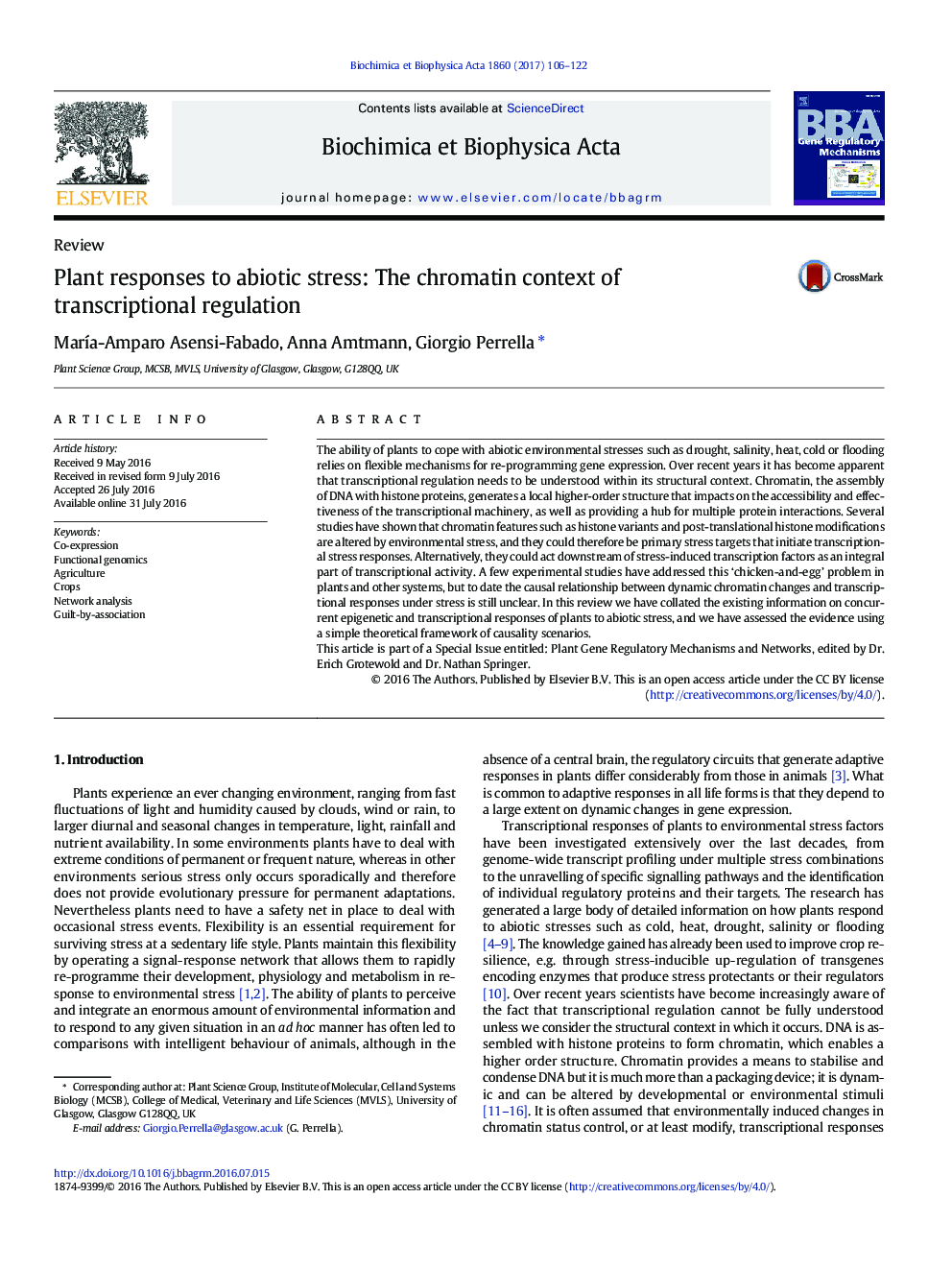| Article ID | Journal | Published Year | Pages | File Type |
|---|---|---|---|---|
| 5507722 | Biochimica et Biophysica Acta (BBA) - Gene Regulatory Mechanisms | 2017 | 17 Pages |
â¢The chromatin context of transcriptional responses to abiotic stress is introduced.â¢Causality scenarios linking chromatin modifications with transcriptional responses are discussed.â¢Current evidence for a role of chromatin modifications in stress responses is reviewed.â¢Histone acetylation and methylation marks in stress-responsive genes are highlighted.
The ability of plants to cope with abiotic environmental stresses such as drought, salinity, heat, cold or flooding relies on flexible mechanisms for re-programming gene expression. Over recent years it has become apparent that transcriptional regulation needs to be understood within its structural context. Chromatin, the assembly of DNA with histone proteins, generates a local higher-order structure that impacts on the accessibility and effectiveness of the transcriptional machinery, as well as providing a hub for multiple protein interactions. Several studies have shown that chromatin features such as histone variants and post-translational histone modifications are altered by environmental stress, and they could therefore be primary stress targets that initiate transcriptional stress responses. Alternatively, they could act downstream of stress-induced transcription factors as an integral part of transcriptional activity. A few experimental studies have addressed this 'chicken-and-egg' problem in plants and other systems, but to date the causal relationship between dynamic chromatin changes and transcriptional responses under stress is still unclear. In this review we have collated the existing information on concurrent epigenetic and transcriptional responses of plants to abiotic stress, and we have assessed the evidence using a simple theoretical framework of causality scenarios.This article is part of a Special Issue entitled: Plant Gene Regulatory Mechanisms and Networks, edited by Dr. Erich Grotewold and Dr. Nathan Springer.
